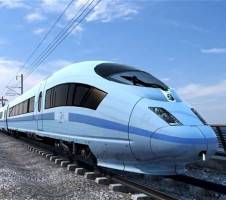January 28, 2015
Digital revolution continues to transform the way we work
 The full extent of the way digital technology is transforming British working life is apparent in new research published by Brunel University. The study – essentially a snapshot of the digital revolution in 2015 – found that 98 percent of the 830 businesses surveyed have a website, 8 in 10 manage finances online, 53 percent provide flexible working and 63 percent see innovation as a way to improve customer satisfaction. However, the study also reveals a major gulf between big business and SMEs, with larger firms significantly more digitised than their smaller contemporaries. This raises concerns over the preparedness of the SME sector at a time when the Government’s growth agenda has prioritised nurturing and supporting new and evolving enterprises – and for whom the digital battleground has broken down traditional barriers to entry.
The full extent of the way digital technology is transforming British working life is apparent in new research published by Brunel University. The study – essentially a snapshot of the digital revolution in 2015 – found that 98 percent of the 830 businesses surveyed have a website, 8 in 10 manage finances online, 53 percent provide flexible working and 63 percent see innovation as a way to improve customer satisfaction. However, the study also reveals a major gulf between big business and SMEs, with larger firms significantly more digitised than their smaller contemporaries. This raises concerns over the preparedness of the SME sector at a time when the Government’s growth agenda has prioritised nurturing and supporting new and evolving enterprises – and for whom the digital battleground has broken down traditional barriers to entry.












 The UK government has announced that it is to extend its groundbreaking One Public Estate scheme to a further twenty local authorities. The programme aims to divest and consolidate government-owned land and property to cut public sector spending and boost economic growth and regeneration. The government believes the initial phase will save £21m in running costs and £88m in capital receipts, generate around £40m for local economies and create an estimated 5,500 jobs and 7,500 homes over the next five years. The Cabinet Office is now looking to build on this with the extension of the schemes to councils including Liverpool and Birmingham city centres as well as six from Greater Manchester and Cornwall, Southampton and Plymouth. The Government Property Unit will provide funding and training to the participating authorities.
The UK government has announced that it is to extend its groundbreaking One Public Estate scheme to a further twenty local authorities. The programme aims to divest and consolidate government-owned land and property to cut public sector spending and boost economic growth and regeneration. The government believes the initial phase will save £21m in running costs and £88m in capital receipts, generate around £40m for local economies and create an estimated 5,500 jobs and 7,500 homes over the next five years. The Cabinet Office is now looking to build on this with the extension of the schemes to councils including Liverpool and Birmingham city centres as well as six from Greater Manchester and Cornwall, Southampton and Plymouth. The Government Property Unit will provide funding and training to the participating authorities. The world of work and the workplace is always changing. We know it. You know it. In fact, there are a whole host of people that know it, but depending on what side of the professional fence you sit on, you might approach it in different ways, looking through a different lens or with a specific focus. Or are you already bridging the professional gap? Workplace change and the numerous ramifications of it are well documented. In a world that is changing, at frightening pace, it is strange to think that many of the ways in which we work are so entrenched in 20th century thinking. We need to break away from this and outline what the future is going to look like and how we should adapt. Or do we already have the answers? This ground is well trodden. However, it could be time to reassess our thinking and the way we approach this challenge, ensuring it becomes the norm for organisations around the world.
The world of work and the workplace is always changing. We know it. You know it. In fact, there are a whole host of people that know it, but depending on what side of the professional fence you sit on, you might approach it in different ways, looking through a different lens or with a specific focus. Or are you already bridging the professional gap? Workplace change and the numerous ramifications of it are well documented. In a world that is changing, at frightening pace, it is strange to think that many of the ways in which we work are so entrenched in 20th century thinking. We need to break away from this and outline what the future is going to look like and how we should adapt. Or do we already have the answers? This ground is well trodden. However, it could be time to reassess our thinking and the way we approach this challenge, ensuring it becomes the norm for organisations around the world.









December 4, 2014
Why doesn’t the HR dept have more of a role in workplace design?
by Steve Brewer • Comment, Facilities management, Workplace, Workplace design
(more…)